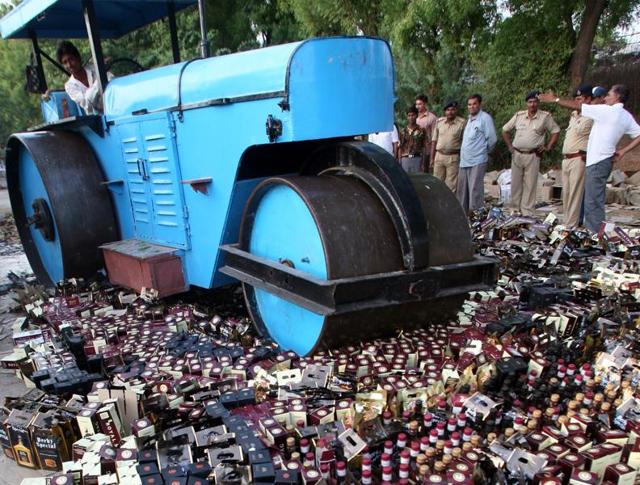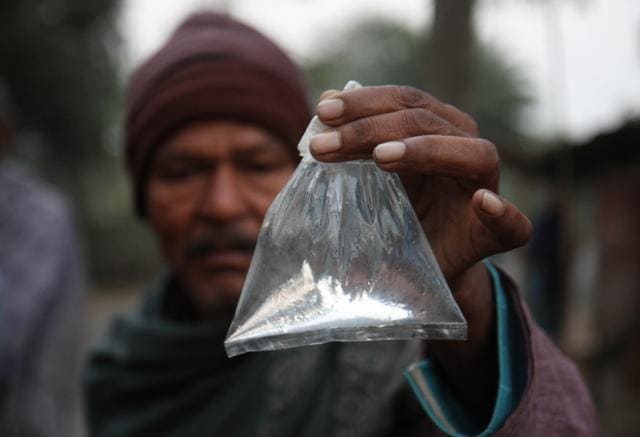A chequered history: Does alcohol prohibition really work in India?
The liquor ban in Bihar adds another chapter to the chequered history of prohibition in India. But does prohibition really work?
The liquor ban in Bihar adds another chapter to the chequered history of prohibition in India. On April 1, the Nitish Kumar-led government imposed Prohibition in Bihar. Delivering on Kumar’s election promise, the government passed a law that prohibits consumption, manufacture and sale of alcohol. It also became the second state, after Gujarat, to prescribe death penalty for manufacturers, suppliers and sellers of hooch in cases of death due to spurious liquor consumption.

Following the Bihar ban, Tamil Nadu chief minister, J Jayalalithaa promised phased prohibition in the state too. With elections round the corner, this is seen as a step to woo women voters.
At the moment, complete prohibition is enforced in the states of Gujarat, Nagaland, and the union territory of Lakshadweep. In Manipur and Maharashtra, there is a partial ban in a few districts. Kerala introduced a phased ban in 2014.
In the past, Mizoram and Haryana had imposed prohibition, but later lifted it. Political parties in Tamil Nadu have yo-yoed with their stand on alcohol since the 1940s.
Read: Ban on alcohol is nothing but a political gimmick
But does prohibition really work?
It’s no secret that states with prohibition have failed to fully control the sale or consumption of alcohol. Nagaland has been a dry state since 1989. But it borders Assam, which helps in keeping an uninterrupted flow of alcohol into the state. But just across the border, on the road that enters Assam from Nagaland’s Dimapur, one can spot rows of liquor shops and makeshift bars. It is not difficult to find pubs hidden in residential complexes in Dimapur either.
In Gujarat, a dry state since 1960 when it was carved out from the Bombay State, it is said that booze gets delivered to the doorstep faster than pizza, with the right contacts (locally called folder). For those who don’t, places such as Abu Road in the north or Daman and Diu in the south are where Gujaratis flock to quench their thirst.
In Bihar too, as reported in Hindustan Times, people are crossing over to bordering Nepal where alcohol is being sold at a premium, or going to shops in Jharkhand, West Bengal and Uttar Pradesh.
Read: In Bombay, Prohibition didn’t just fail. It spawned the underworld
The Debate
Bihar’s decision to ban alcohol comes at a time when states such as Nagaland and Manipur are debating whether to continue with full prohibition or not. In fact, Mizoram lifted the 18-year-old ban on alcohol in 2014.
Mizoram’s excise and narcotics minister, R Lalzirliana, had reportedly said, “As the prohibition only increased the sale of spurious liquor, we strongly felt the need to lift the prohibition.”
From 1920 to 1933, America had once experimented with prohibition, what they called the ‘noble experiment’. American historian, Thomas Coffey, in his book, The Long Thirst: Prohibition in America, noted that “the death rate from poisoned liquor was appallingly high throughout the country. In 1925 the national toll was 4,154 as compared to 1,064 in 1920”.
Read: High and dry, booze lovers run beyond Bihar borders to quench thirst
India has a recurring problem of poisoned or spurious liquor though it is not limited to states with prohibition. In July 2009, 136 people died in Gujarat after consuming hooch. In June 2015, 95 people died after drinking illegal liquor in Mumbai. After the hooch tragedy in a Mumbai suburb last year, a demand for total prohibition was raised in the Maharashtra assembly. (The Bombay Prohibition Act of 1949, imposed in its entirety in Gujarat, has been, over the years, tweaked in Maharashtra to make Prohibition less strict.)

In 2015, a reply by the excise department to a PIL demanding prohibition in the Bombay High Court read, “The enforcement agencies have never been able to enforce complete prohibition. Illicit distillation, transport & sales are rampant as can be seen from the figures of the enforcement work.”
In 1963, ‘it was decided to shift the emphasis in the policy from “prohibition of consumption” to “prohibition of illicit consumption and prevention of bootlegging”,’ said the reply to the High Court.
The states of Gujarat, Nagaland and Mizoram are examples of how prohibition gave rise to bootlegging, corruption and crime. A page from America’s history points to how a surge in demand along with illegalisation of alcohol opened up new illegal markets for gangsters to develop and monopolise. The lack of law enforcement during prohibition led to the rise of the mob and notorious criminals such as Al Capone, Dutch Schultz and George Remus, believed to have inspired the character Jay Gatsby in F Scott Fitzgerald’s The Great Gatsby.
A policy analysis titled ‘Alcohol prohibition was a failure’ by American economist, Mark Thornton, mentions that prohibition was undertaken to reduce crime and corruption, solve social problems, reduce the tax burden, and improve health and hygiene in America. Instead, he writes, it was a miserable failure on all counts. Thornton’s research on prohibition, too, points out how a gradual decline in rate of serious crimes was unintentionally reversed by the prohibition movement. A 78 percent increase over the pre-prohibition days was seen in homicide rate in America, he noted.
Read: Drunk man’s logic: Bihar’s alcohol ban won’t really empower women
Loss of Revenue
In an interview in 2014, Kerala chief minister Oommen Chandy had said that though prohibition would lead to financial loss and decline in tourism revenue, he would go ahead with the ban.
Kerala faces an estimated loss of more than Rs.7,000 crore annually and Gujarat loses an estimated Rs 2,000-3,000 crore in revenue per year. Bihar is set to lose more than Rs.4,000 crore annually through excise collection.
But Nitish Kumar seems firm in his commitment. “I feel this is the right time for social change in Bihar. People will now use the money invested in liquor to add nutrition to their plates, avoid disease and economic ruination. That offsets all revenue concerns,” Kumar told reporters.
Read: Women’s vote bank in mind, prohibition is new elixir for politicians
(With inputs from Hiral Dave in Ahmedabad, Riddhi Doshi in Mumbai, Vijay Swaroop in Patna)
Get Current Updates on India News, Election 2024 along with Latest News and Top Headlines from India and around the world.




